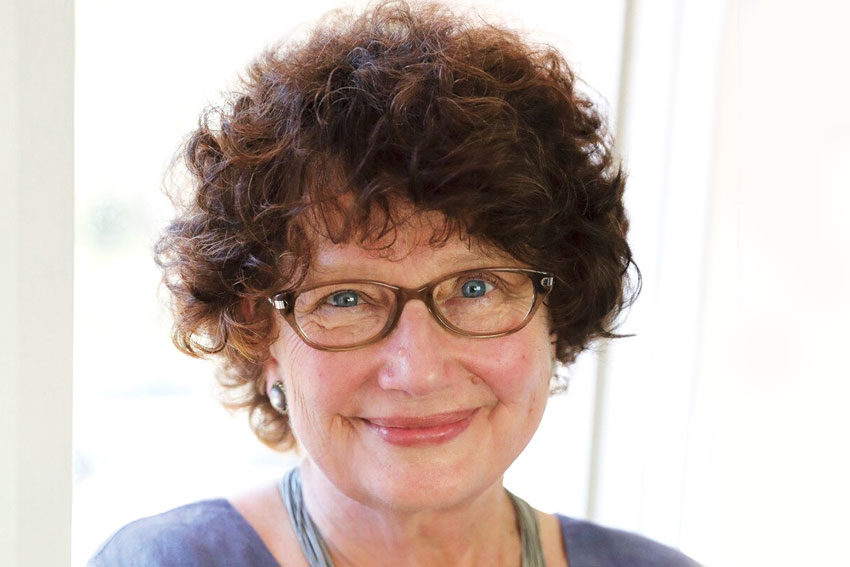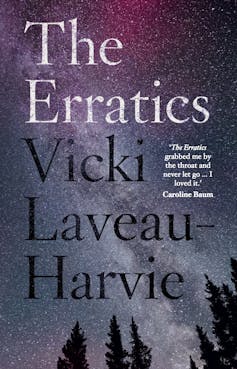Vicki Laveau-Harvie's remarkable, uncomfortable memoir wins the 2019 Stella Prize

Laveau-Harvie’s debut memoir The Erratics possesses a rare honesty, exploding socially sanctioned ideas about mothers and families.
Vicki Laveau-Harvie’s memoir of a “monstrous” mother has won the 2019 Stella Prize.
The Erratics tells the story of Vicki’s return home to a prairie house in the sparse wintry landscapes of Alberta, Canada, where she grew up. Once there, the narrator faces family relationships that are strained to the point of breaking.
This is Laveau-Harvie’s debut work – making her the second first-time writer to win in the prize’s seven year history. The book’s road to the Stella Prize is an impressive one: first released by a now-defunct independent publisher, it was reissued by a major publishing house, after being longlisted for the Prize.

Vicki is convinced that her mother is attempting to kill her father, by starving him to death, keeping him on a diet of spinach, bok choy and kale. Her father defers to his wife, often against all reason, and indeed safety.When the book begins, its narrator has been absent from her family for 18 years. Her mother is clearly unwell, and Vicki believes she should be declared legally “incompetent” against her wishes.
This book shatters social expectations that a mother is all-loving, all-knowing, and all-caring, by setting them against the bleak reality of what one mother is. It explodes culturally sanctioned ideas about what a mother ought to be, feel and do. It does so with a rare – often dark, and deeply unsettling – honesty.
The writing style is taught, elegant and clinically restrained. The narrator is almost numb.
The judges said:
“Set against the bitter cold of a Canadian winter, Vicki Laveau-Harvie’s The Erratics mines the psychological damage wrought on a nuclear family by a monstrous personality. Despite the dark subject matter, this book has a smile at its core, and Laveau-Harvie shows constant wit when depicting some harrowing times.”
There are many uneasy truths in this book. It’s occasionally difficult to feel empathy for the narrator, with her myriad blind spots, and the way her desires too often lead her to fashion the world according to her own needs – seen in her failure to understand the psychiatrist’s serious hesitation to commit her mother to a locked ward unless she is genuinely a threat to herself or to others. In her too easy belief that her father’s carer is a “gold-digger”. And in the many judgments that are delivered down the telephone line from half a world away, after she returns to Sydney.
“I would very much like to mean ‘we’, my sister and me,” she writes about the question of who will be caring for her aged parents. “But I’m leaving, my sanity always dependent on living somewhere remote […] My sister and her partner will shoulder almost all of what needs doing.”
There is grief, though, when news breaks that her mother’s medical team have decided she requires constant care in a mental health ward. Vicki writes:
“I think of everything my mother will never see again, the view over the foothills to the Rockies from the windows of her house, the animals in the duck light, fawns gambolling unsteadily, coyotes pausing to give you the slightest of nods before loping across the lawns […]”
And yet, it is difficult reading to the end: grief expressed from faraway Sydney feels disparaging of her caregiving sister’s nervously exhausted relief at, in the narrator’s words, the “wicked witch being dead”.
This is a remarkable book. It is also a deeply uncomfortable one. And that – I suspect – is precisely the point. Where the rest of us would rather deal in easy platitudes, this book is deeply honest.![]()
Camilla Nelson, Associate Professor in Media, University of Notre Dame Australia
This article is republished from The Conversation under a Creative Commons license. Read the original article.
Header image:
Stella Prize